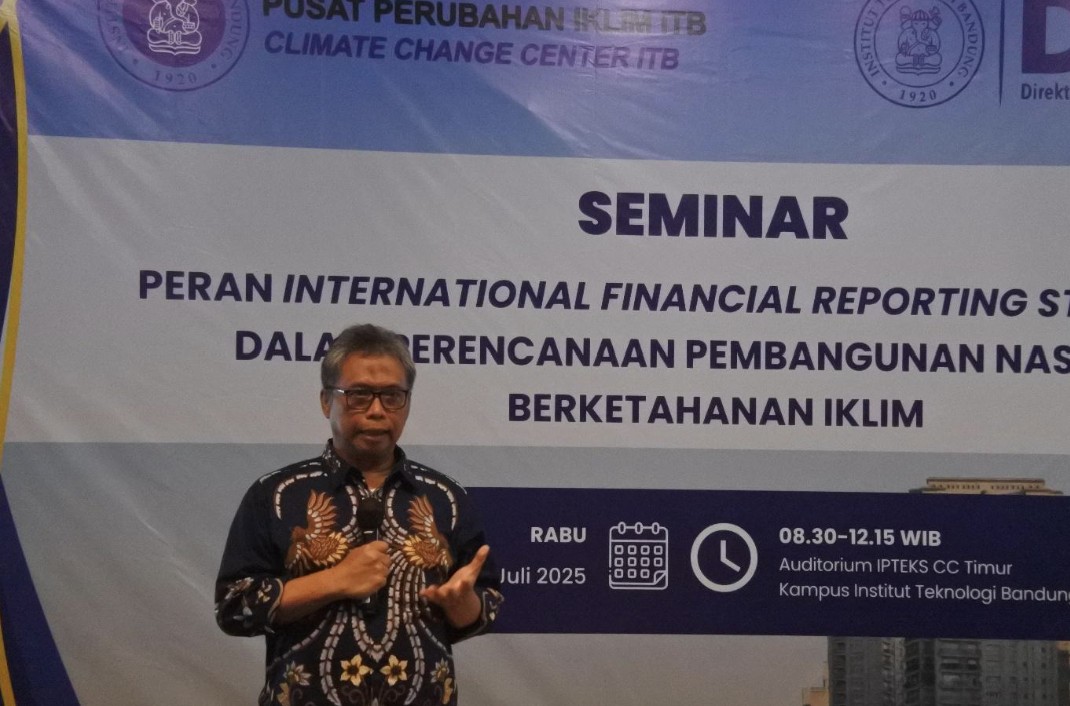Webinar Explores Urban Climate Resilience in Indonesia at SAPPD ITB 2023
By Anggun Nindita
Editor Anggun Nindita

BANDUNG, itb.ac.id - The seventh installment of the School of Architecture, Planning, and Policy Development (SAPPD) ITB webinar series, titled "Harnessing Urban and Regional Resilience in the Era of Global Crises," took place in a blended format at Room JFP Floor 2 Labtek IX A SAPPD ITB and through the Zoom Meeting platform on Wednesday (30/08/2023).
Nurrohman Wijaya, S.T., M.T., M.Sc., a lecturer in the Development Management and Policy Expertise Group at SAPPD ITB, served as the speaker for this insightful webinar. He presented on "Evaluating Urban Climate Resilience in Indonesia," sharing his experiences and ongoing research in developing a framework for urban climate resilience.
An essential aspect discussed was the impact of climate change on disasters, particularly in Indonesia. Mr. Wijaya elaborated on how changes in weather patterns can adversely affect socio-economic structures and urban infrastructure, citing data from the Disaster Management Agency that links 95% of disaster events in Indonesia to climate, with floods being the most common occurrence.
The webinar also delved into the significance of identifying suitable strategies and recommendations to mitigate the risks and effects of climate change in urban areas. The challenge for the government lies in providing sufficient infrastructure, exacerbated by the growth of the urban population and urbanization.

Mr. Wijaya's research specifically focuses on assessing urban resilience to climate change in coastal cities in Indonesia, considering various variables such as economics, infrastructure, social factors, government regulations, and the environment. The research findings underscored three key considerations for urban climate resilience: scientific rigor, practical implementation, and policy implications. This research aims to lay the foundation for a framework to evaluate urban climate resilience and establish suitable policies.
In conclusion, Mr. Wijaya emphasized the importance of strengthening the connection between quantitative climate change modeling and climate resilience policies. Incorporating quantitative climate change modeling is crucial for effective urban planning. The comprehensive approach proposed should align with national climate resilience policies.
The seventh session of the SAPPD 2023 webinar offered valuable insights into the challenges and opportunities of addressing climate change in urban and regional areas, exploring solutions for a more resilient future amidst global crises.
Reporter: Hafsah Restu Nurul Annafi (Perencanaan Wilayah dan Kota, 2019)
Translator: Anggi Nurdiani (Manajemen, 2021)
Editor: Vera Citra Utami

.jpg)
.jpg)
.jpg)
.jpg)
.jpg)

.jpg)
